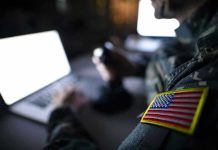
President Trump clashes with Governor Newsom as National Guard troops deploy to Los Angeles amid violent ICE protests, with Newsom warning of “civil war in the streets” while Trump fires back, “Civil war would happen if you left it to people like him.”
Key Takeaways
- President Trump deployed 2,000 National Guard troops to Los Angeles without Governor Newsom’s request, sparking a heated exchange and potential legal battle
- Thousands of protesters blocked freeways, set self-driving cars ablaze, and vandalized federal property in response to ICE raids that resulted in over 40 arrests
- California officials, including Governor Newsom and Attorney General Bonta, are pursuing legal action against Trump’s deployment, claiming it violates state sovereignty
- Trump invoked rarely used federal powers allowing troop deployment during rebellion or threats to U.S. government authority
- Republican supporters defend the deployment as necessary for public safety while Democrats condemn it as federal overreach
Federal Intervention in Los Angeles Protests
President Donald Trump authorized the deployment of 2,000 additional National Guard members to Los Angeles in response to escalating protests over immigration enforcement operations. The deployment marks the first time in decades that a state’s National Guard has been activated without the governor’s request, creating immediate tension between federal and state authorities. While the deployment order has been signed, the actual movement of troops could take one to two days to complete. Simultaneously, the Pentagon deployed approximately 700 Marines to protect federal property and personnel in Los Angeles, demonstrating the administration’s resolve to maintain control of the situation.
The protests that prompted this federal response began after Immigration and Customs Enforcement (ICE) arrested more than 40 people in Los Angeles. Demonstrations quickly intensified, with thousands of protesters blocking major freeways, setting self-driving cars on fire, and vandalizing federal buildings including LAPD Headquarters and the U.S. Courthouse. Law enforcement officers responded with tear gas, rubber bullets, and flash-bangs to control the crowds. Los Angeles Police Chief Jim McDonnell reported 39 arrests over the weekend, primarily occurring on Saturday when tensions reached their peak.
State Officials Push Back Against Federal Authority
California Governor Gavin Newsom has been vocal in his opposition to the federal intervention, criticizing President Trump’s decision as reckless and politically motivated. “This isn’t about public safety. It’s about stroking a dangerous President’s ego,” said Governor Gavin Newsom. The governor has announced plans to sue the Trump administration, characterizing the deployment as “illegal and immoral.” California Attorney General Rob Bonta has already initiated legal action, stating, “We don’t take lightly to the president abusing his authority and unlawfully mobilizing California National Guard troops.”
“He’s exacerbated the conditions. These are images that Donald Trump created,” Said Gavin Newsom.
Los Angeles Mayor Karen Bass has also opposed the deployment, emphasizing that the situation in Los Angeles was peaceful before the federal immigration raids began. Her stance reflects the broader position of California officials who point to the California Values Act, which prevents local law enforcement from assisting federal immigration activities. This state law creates a direct conflict with federal immigration enforcement efforts, setting the stage for a significant legal battle over state sovereignty versus federal authority in immigration matters.
Trump and Newsom’s Heated Exchange Over “Civil War” Concerns
The tension between President Trump and Governor Newsom escalated dramatically when Newsom suggested that the administration was seeking “civil war on the streets” amid the protests. Trump responded forcefully when questioned about these accusations. “No, it’s the opposite. I don’t want a civil war. Civil war would happen if you left it to people like him,” Said Donald Trump.
“The mobilization of troops for domestic crowd control should remain the rarest of events and only in the most utterly extreme circumstances. The current protest in California against the ICE/federal immigration arrest spree is not one of those instances. The President’s action likely will be counter-productive and actually raise tensions, instead of gaining better control of the situation,” Said Michael McAuliffe, former federal prosecutor.
Legal Basis and Political Division
President Trump invoked a rarely-used legal provision—Section 12406—allowing federal troop deployment in cases of rebellion or danger against U.S. government authority. Conservative legal analyst Jonathan Turley has noted that Trump has clear authority under this section and could potentially use the Insurrection Act as well. This legal foundation has created a sharp political divide, with California Republican Representative Kevin Kiley supporting Trump’s actions by citing serious risks to public safety in Los Angeles. Meanwhile, U.S. Attorney for Central California, Bill Essayli, has mentioned the possibility of deploying even more troops to Los Angeles if the situation continues to deteriorate.
The protests have spread beyond Los Angeles, with similar demonstrations occurring in San Francisco, where 60 arrests were made and two officers were injured. The growing unrest has drawn national attention, with officials like Representative Maxine Waters and other Democratic leaders condemning the Trump administration’s immigration enforcement actions and subsequent military response. These developments highlight the deeply polarized views that continue to define America’s approach to immigration and border security policies under President Trump’s administration.


















